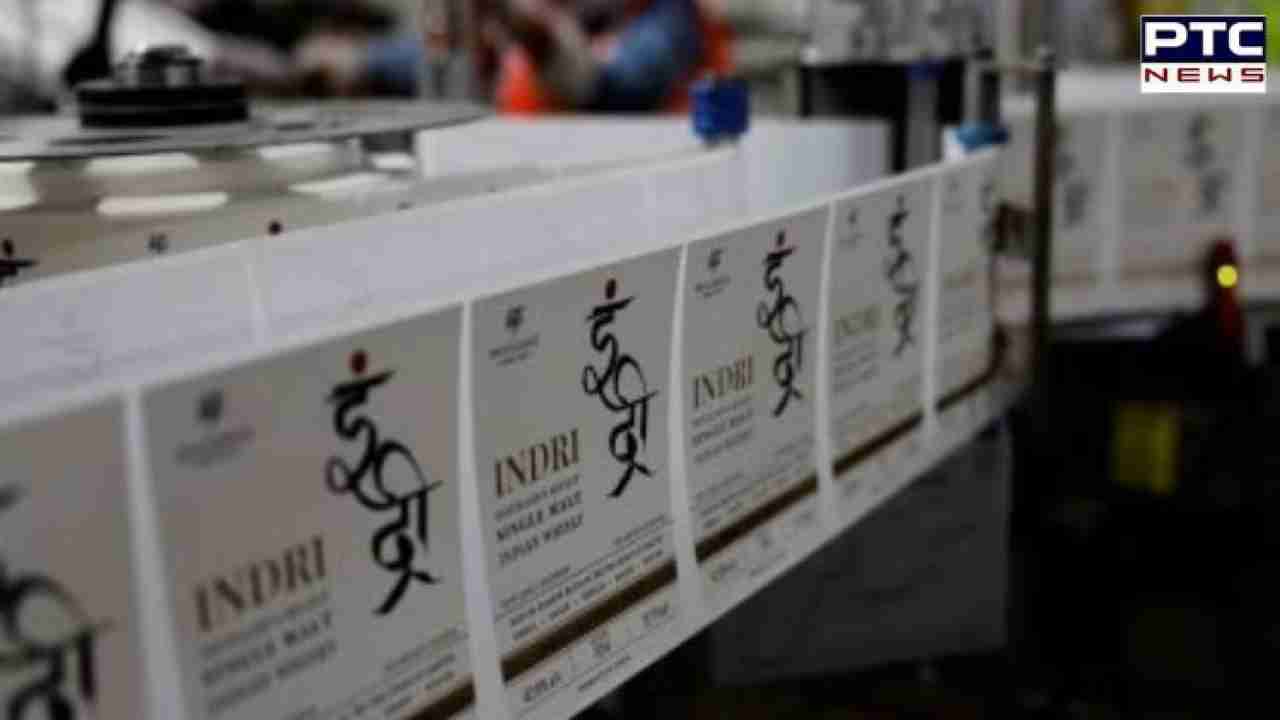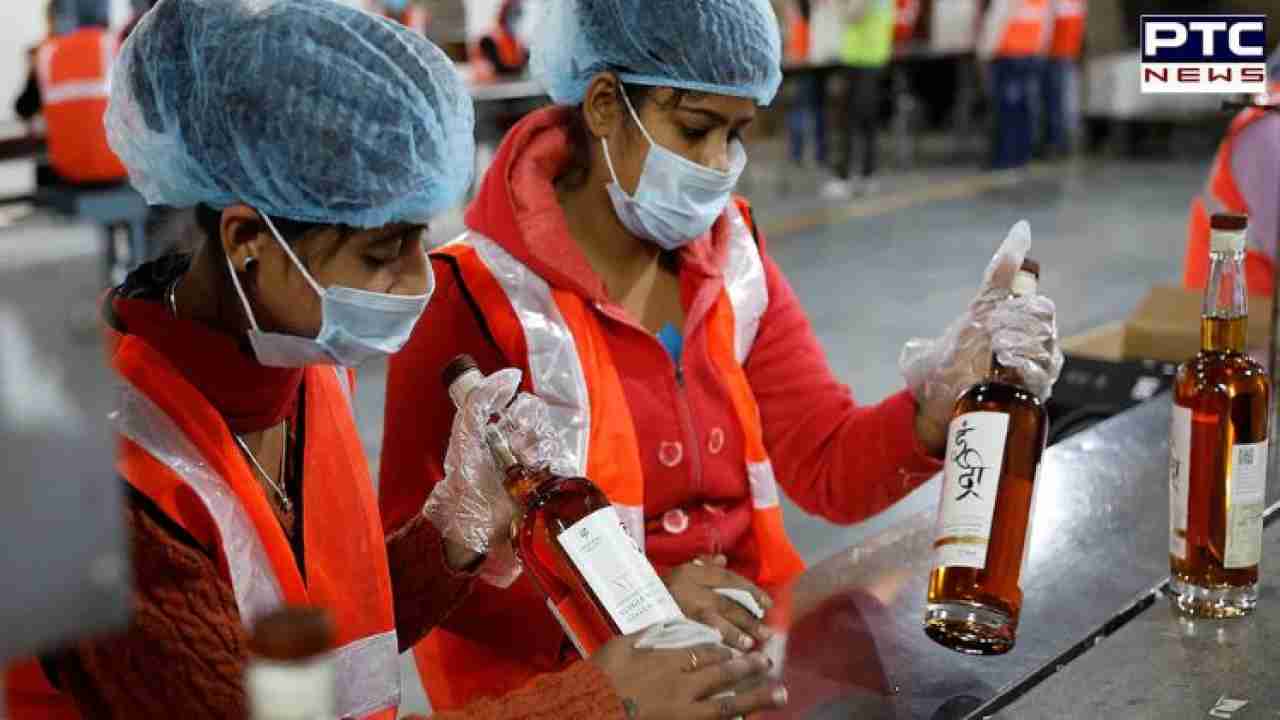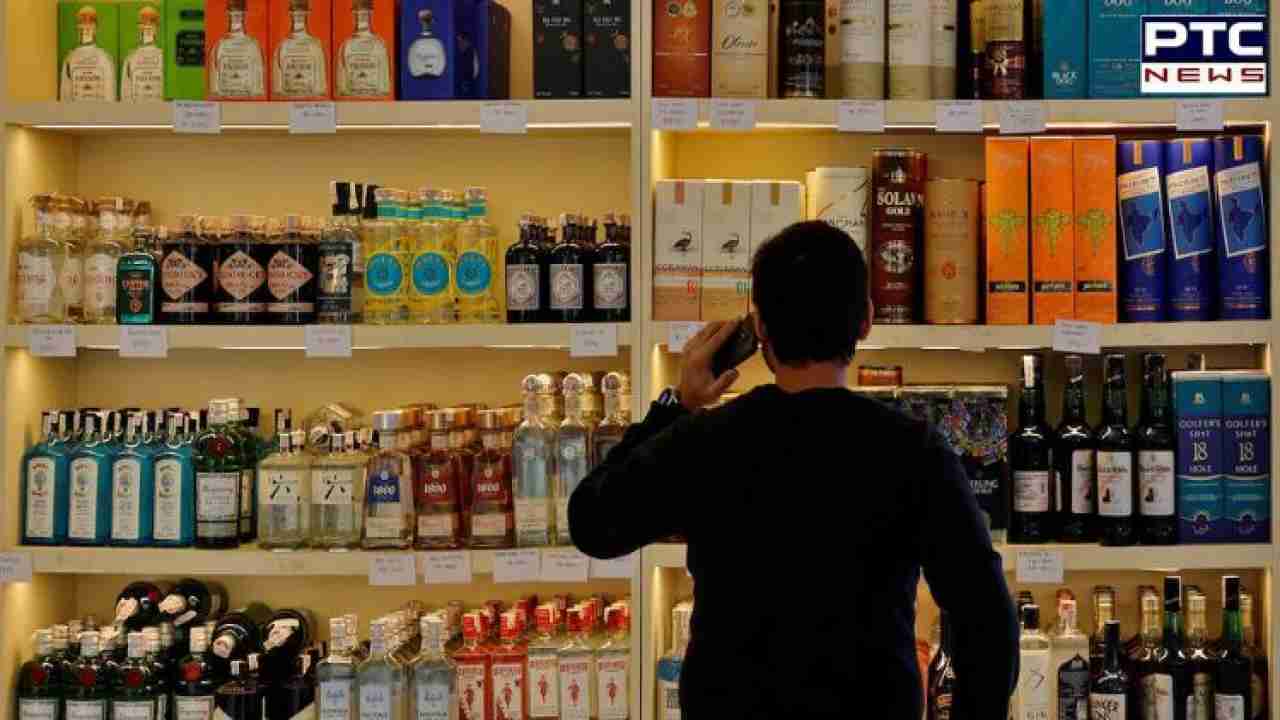

India's award-winning whisky sends ripples through global brands
New Delhi, December 17: In a distillery near New Delhi, oak casks, once home to bourbon and wine, are now filled with aging whisky as workers tirelessly produce nearly 10,000 bottles a day of the acclaimed Indian single malt, Indri. Recently crowned as the world's best whisky, this two-year-old brand is causing ripples in India's $33 billion spirits market.
Surrounded by sugarcane and mustard fields rather than traditional peat bogs, the distillery is owned by Piccadily, the brains behind the rising Indri brand. In an effort to capture the attention of whisky enthusiasts in the nation, Piccadily is expanding production and even building a three-hole golf course at the facility.

India is transitioning from being solely a consumer to a producer of whisky, and its single malts are playing a pivotal role in reshaping the country's spirits market. Well-established global brands like Glenlivet and Talisker now contend for shelf space with local competitors such as Indri, Amrut, and Radico Khaitan's Rampur.
India, primarily a whisky-drinking nation, has witnessed a transformation in its whisky landscape due to global awards, increased affluence, and a surge in consumers experimenting with new brands during the COVID-19 lockdowns.
Aditya Prakash Rao, a longtime consumer of foreign brands, has now shifted towards Indian malts, not only for personal consumption but also as gifts during festive seasons. Indian whisky, he believes, evokes a sense of national pride and complements the country's spicy cuisine.
Indri's Diwali Collector's Edition, priced at $421 (Rs 34,960), made headlines by winning "Best in Show" at the Whiskies of the World Awards blind tasting in San Francisco, surpassing Scottish and U.S. competitors.

Responding to the growing trend of embracing Indian whiskies, global brands traditionally focused on Scottish single malts are venturing into India to tap into one of the world's largest whisky markets. Pernod, for instance, unveiled its first made-in-India single malt, the $48 Longitude 77, featuring Bollywood stars and Indian music. Plans are underway to expand sales first to Dubai and subsequently to the global market.
"We are extremely bullish about this category. It has seen unprecedented growth," affirms Kartik Mohindra, Pernod India's chief marketing officer.
Diageo, the larger competitor to Pernod, entered the scene last year with its inaugural Indian single malt, Godawan, named after an endangered Indian bird, and distributed in five foreign markets, including the United States.
Vikram Damodaran, Diageo's India Chief Innovation Officer, noted the shift from whisky in India to Indian whisky, both within the country and on a global scale.

Despite a remarkable 39% volume growth in 2021, Pernod's Glenlivet, traditionally India's best-selling single malt, was surpassed by Amrut, experiencing an impressive 183% spike, according to Euromonitor data.
The surge of Indian single malts in 2021-22, witnessing a 144% increase, outpaced the 32% growth in Scotch, as reported by IWSR Drinks Market Analysis. Projections until 2027 indicate a 13% annual growth for Indian malts, surpassing Scotch at 8%.

Piccadily Distilleries, the creator of Indri, aims to enhance production capacity by 66%, reaching 20,000 liters (5,300 gallons) daily by 2025. The company plans to double the number of casks to 100,000 at its expansive distillery located 160 km (100 miles) north of India's capital.
While local brands like Indri, Amrut, and Rampur may not be budget-friendly, with prices starting at $37 (Rs 3,000), $42 (Rs 3,400), and $66 (Rs 5,400), respectively, they compete with Pernod's Glenlivet, retailing from $40 to $118, depending on age.
Pernod's Longitude 77 launch featured the new single malt and cocktails crafted with local elements such as Kashmiri saffron and Alphonso mangoes, served to CEOs, diplomats, celebrity chefs, and other distinguished guests.
Rampur, produced by Radico, anticipates doubling sales annually, with a concentrated effort on expanding the domestic market, which currently contributes 75% to its business. Sanjeev Banga, President of International Business, emphasized that having both Diageo and Pernod venture into the Indian single malt category signifies its status as a "category of the future," a departure from their traditional focus on mainstream foreign brands.
- With inputs from agencies
